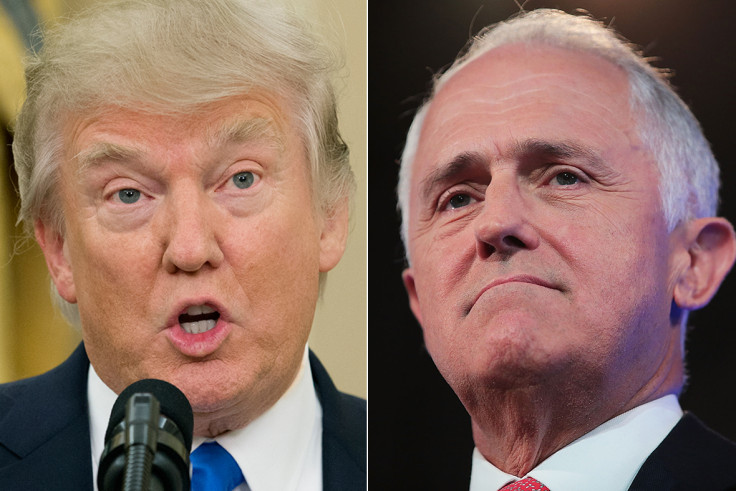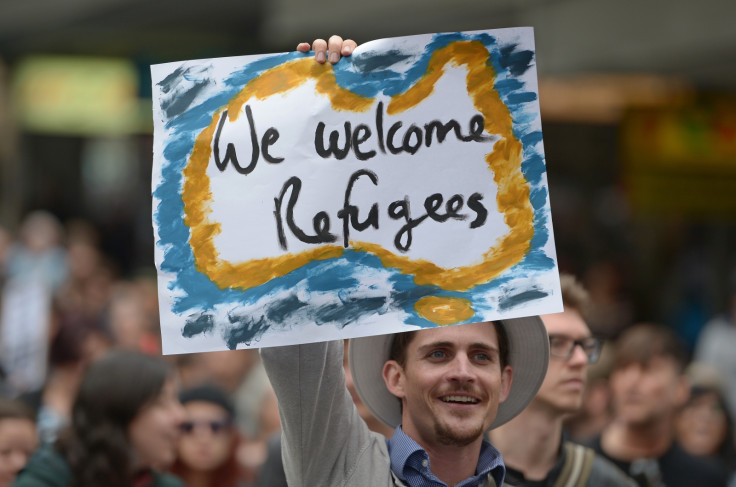Malcolm Turnbull wants to send refugees to America - why can't Australia offer them a home?
I've been to Australia's offshore facilities, and there's no question it's causing the refugees real harm.
It's no surprise that US President Donald Trump would suggest rethinking the refugee deal the Australian government struck with the Obama administration in November. It may indeed go ahead—although the president criticised it, his press secretary said on Thursday (2 February) afternoon that Trump would respect the arrangement. But that's by no means certain, and the only real surprise here would be if Prime Minister Malcolm Turnbull of Australia hadn't foreseen the risk that it might fall apart.
Trump's suspicion of and hostility towards refugees was evident well before the US election. A week after taking the oath of office, he suspended US refugee admissions for at least 120 days, cut this year's refugee intake by more than half, and imposed an indefinite ban on all Syrian refugees.
None of this has boded well for the agreement, under which the United States would consider taking some of the 1,250 refugees held by Australia in the neighbouring countries of Nauru and Papua New Guinea.
The Australian government badly wants the agreement to go ahead because its "offshore processing" of refugees is becoming increasingly unsustainable. Papua New Guinea's supreme court has ordered that country's centre shut, and Nauru's government has repeatedly stated that it expects its arrangement with Australia to be temporary.

The offshore arrangements are also extremely costly. The Australian government has not regularly released detailed expenditure accounts for these operations, but it's clear from the figures it has provided that the price tag is at least €240,000 per person per year.
Adding to the pressure, the Australian government's international reputation is suffering over its offshore refugee operation, and rightly so. I've been to Australia's facilities on both Papua New Guinea and Nauru to interview refugees and asylum seekers, and there's no question that Australia's offshore operations are causing the refugees real and lasting harm.
Nearly everybody I interviewed on Nauru described high levels of anxiety, trouble sleeping, mood swings, and feelings of listlessness and despondency that began when they were forcibly transferred to the island. Children wet their beds, suffered nightmares, acted out, and in some instances stopped speaking to people outside their immediate families.
Both children and adults have regularly considered and even attempted suicide. A 15-year-old girl told me that she'd tried to commit suicide twice while on Nauru. "I'm tired of my life," she said.
A leaked report from the United Nations High Commissioner for Refugees (UNHCR) found that post-traumatic stress disorder and depression "have reached epidemic proportions" among those held in both locations.

"The world's refugee crisis knows no more sinister exercise in cruelty than Australia's island prisons," the New York Times columnist Roger Cohen wrote in December, succinctly summarising both the human toll of Australia's policies and the damage they have inflicted on its international standing.
Hoping the lifeline the Obama administration had thrown him would hold, Turnbull persisted with the public claim that the deal was going ahead. That line wore increasingly thin in recent weeks, particularly after his office and Trump's offered conflicting accounts of their first telephone call.
The brevity of their conversation led reporters to ask if Trump had hung up on Turnbull. Trump himself took to Twitter to describe the agreement as a "dumb deal," questioning why it had been made.
Despite what the White House press secretary said on Thursday, Australia may now need to be prepared to solve a problem of its own making.
There's an obvious solution, one that doesn't depend on the United States and its new president, which would yield substantial savings, and could be implemented immediately: Turnbull could transfer all the refugees and asylum seekers now offshore to Australia.
The prime minister should do exactly that.
Michael Bochenek is the senior children's rights counsel at Human Rights Watch.
© Copyright IBTimes 2025. All rights reserved.






















